
How to sear meat properly
Whether you’re cooking steak or getting ready to slow cook a pot roast, searing is a cooking method that helps seal in the juices of your dish, adding flavor and visual appeal to your family’s favorite dinner recipes. This step-by-step guide offers helpful tips on how to sear meat properly. Follow along to learn about what searing is, when to sear while cooking meat and the differences between searing and other common cooking techniques.
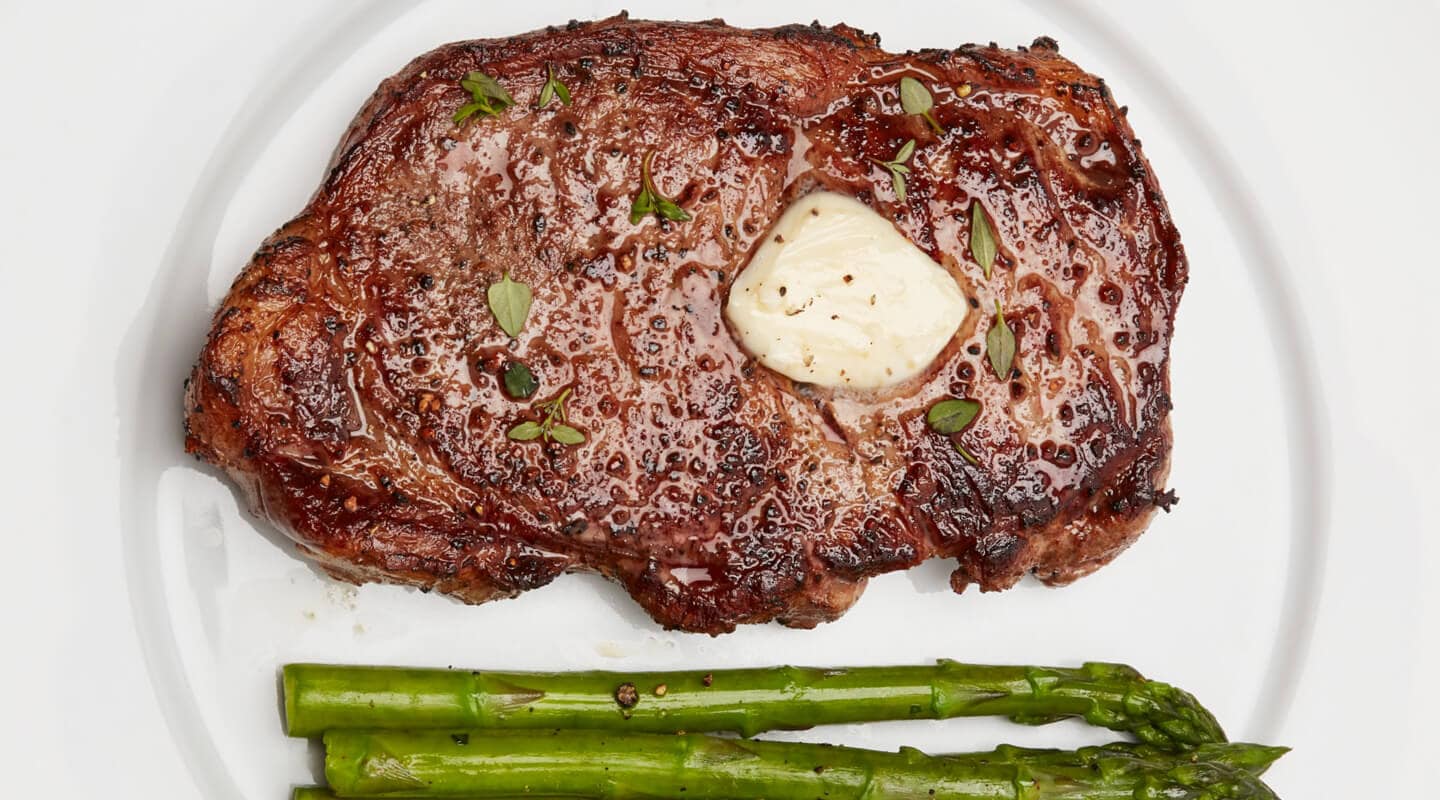
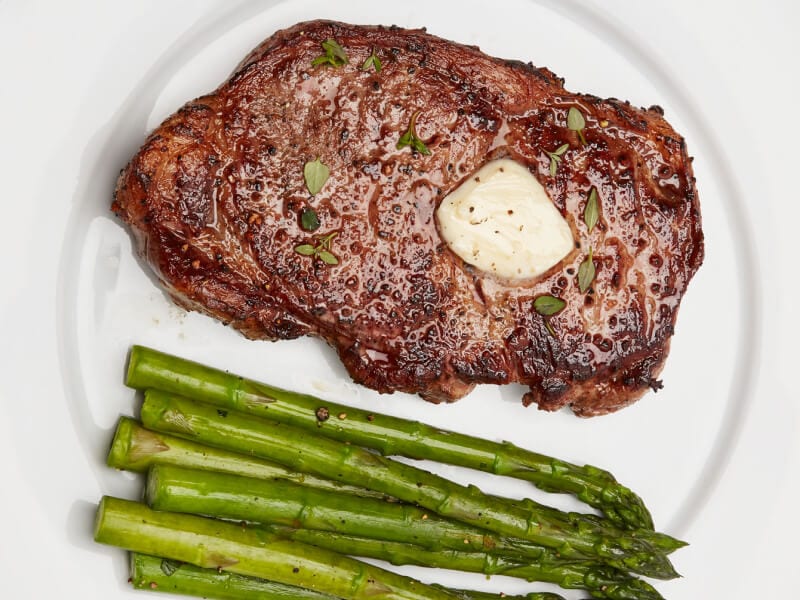
What does it mean to sear meat?
Searing is a technique that involves scorching the outer surface of meat at a high temperature. When you do this, the outside of the meat will develop a delicious crispy and brown crust. This technique is often used to lock in the juice of the meat for a tender bite that's packed with flavor.
Why do you sear meat?
When it comes to creating healthy and nutritious recipes for your family that are also delicious, you can use searing to help amplify the flavor, texture and look of the finished dish through the process of caramelization.
If you're in the early stages of exploring different cooking techniques to give your family's favorite recipes a boost, searing is a simple way to achieve impressive recipes like roast or steak dinners, as well as dishes with flavorful chops or fish with a rich outer crust.

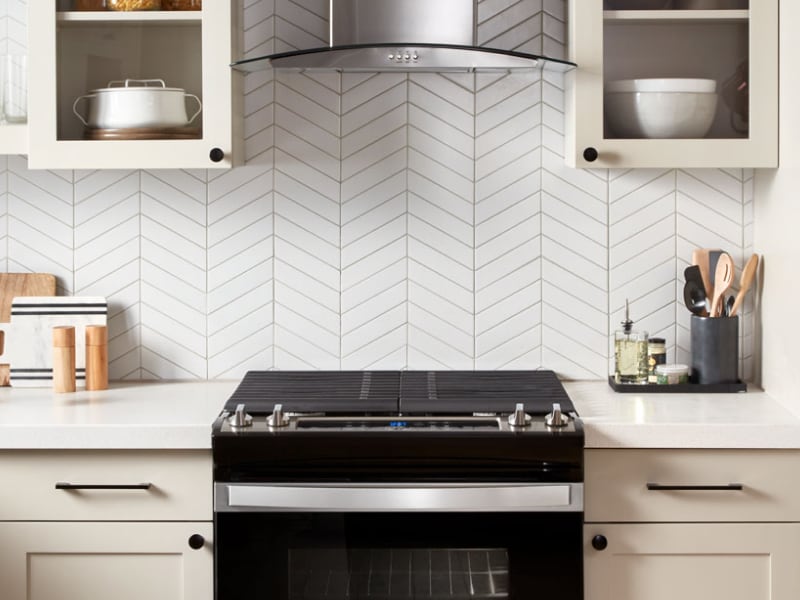
How to pan sear meat in 4 steps
Searing meat is all about flavor. While it may seem like an advanced technique, you can learn how to sear meat by understanding how the process works to start applying it to your family’s favorite dinner recipes with flavorful proteins like chicken, steak or fish.
Yields
- 1 serving
Ingredients
Meat of your choice, such as poultry, steak or fish
Cooking oil, such as olive oil
- Seasoning
Tools
Heavy skillet or pan
Spatula or cooking tongs
Prep time
- 5 minutes
Cook time
- 2-3 minutes
Total time
7-8 minutes

Step 1: Preheat the pan
Preheat a heavy skillet or pan over medium-high heat. Using high heat is important when searing, which will help the meat develop a rich, flavorful caramelization.

Step 2: Prepare the meat
While the pan is preheating, prepare the meat for searing according to your recipe. Use this time to trim the meat or add seasoning like salt, pepper or lemon.

Step 3: Add oil to the pan
Coat the pan in cooking oil, allowing the oil to heat before adding the prepared meat to the pan.

Step 4: Sear the meat
Place the meat in the pan and sear for a few minutes on each side. While cooking, resist the urge to adjust the meat by flipping or jostling the pan. Moving the meat around too early can prevent the crust from forming properly. Spooning the basting juices to the surface of the meat helps to ensure a crispy crust. Discover how to deglaze a pan after searing the meat.
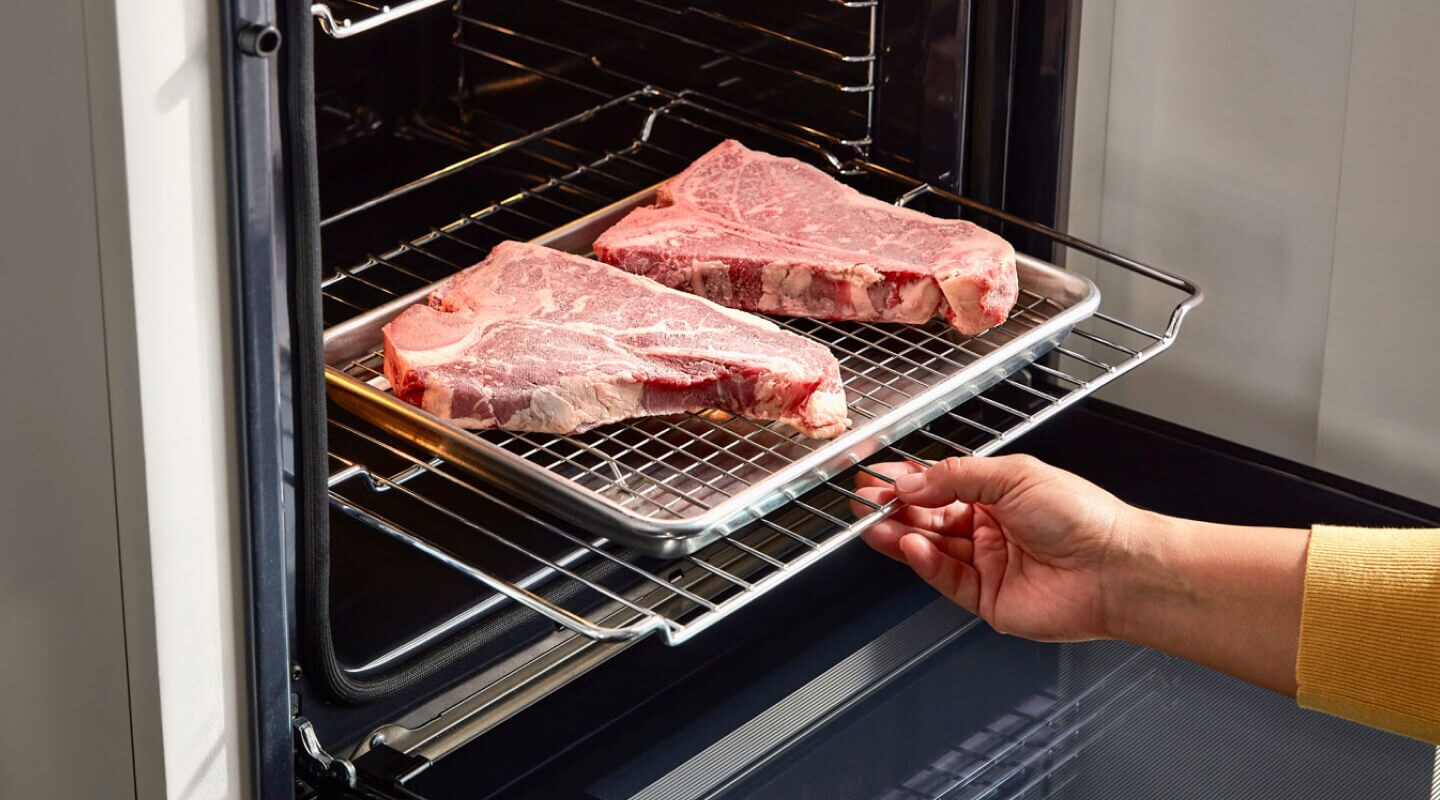
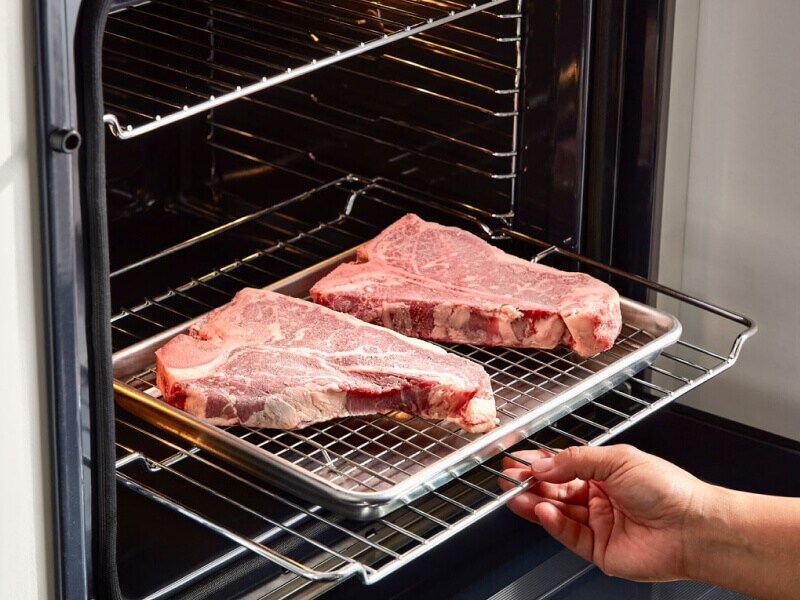
What is the difference between browning and searing?
The main differences between browning and searing are temperature and cooking time. With browning, food is cooked at a lower temperature for a longer time. Searing involves the opposite, using high heat to cook meat for a shorter time.
The two techniques can also affect the color of the meat. With browning, the final result is usually a lighter brown compared to the rich, dark brown crust achieved by searing.
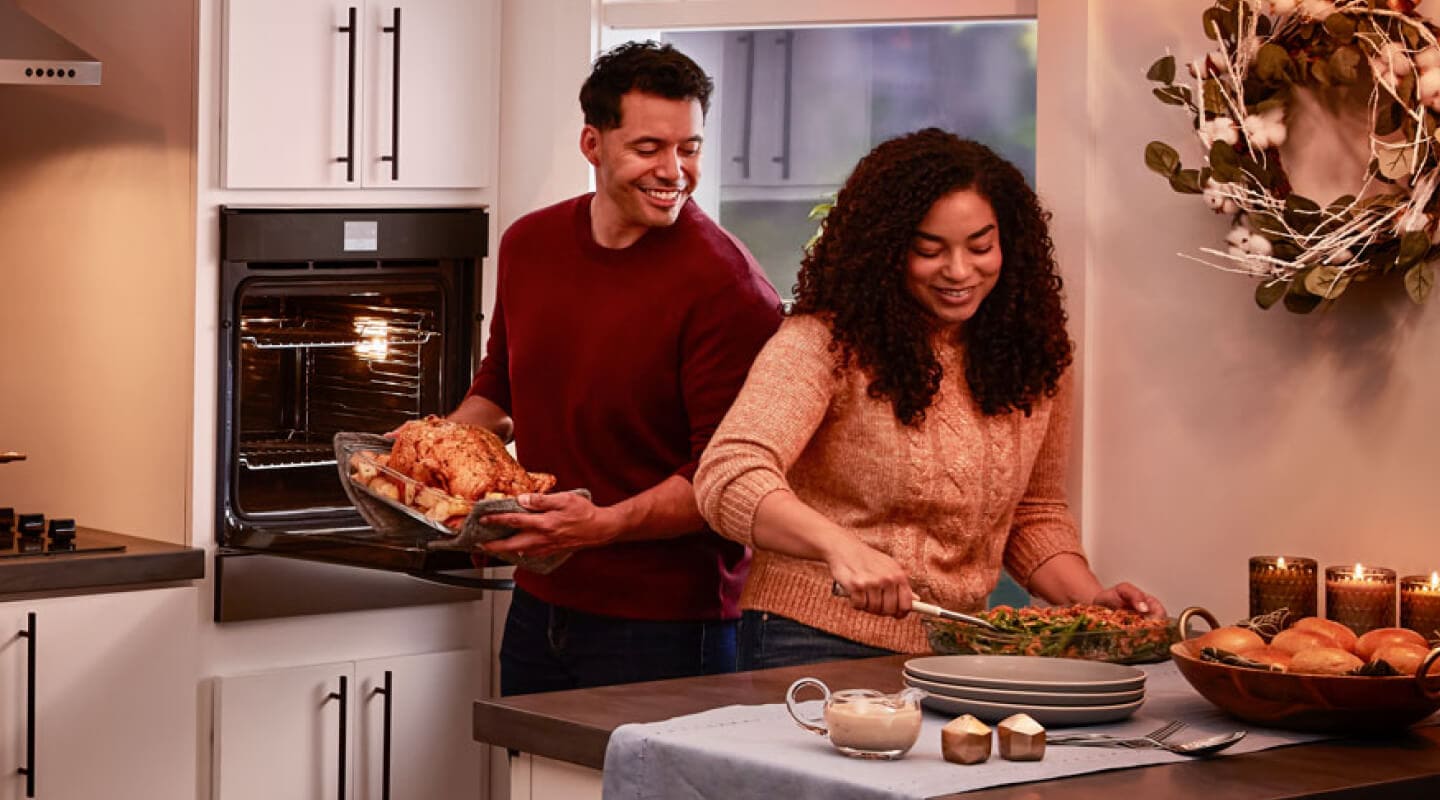
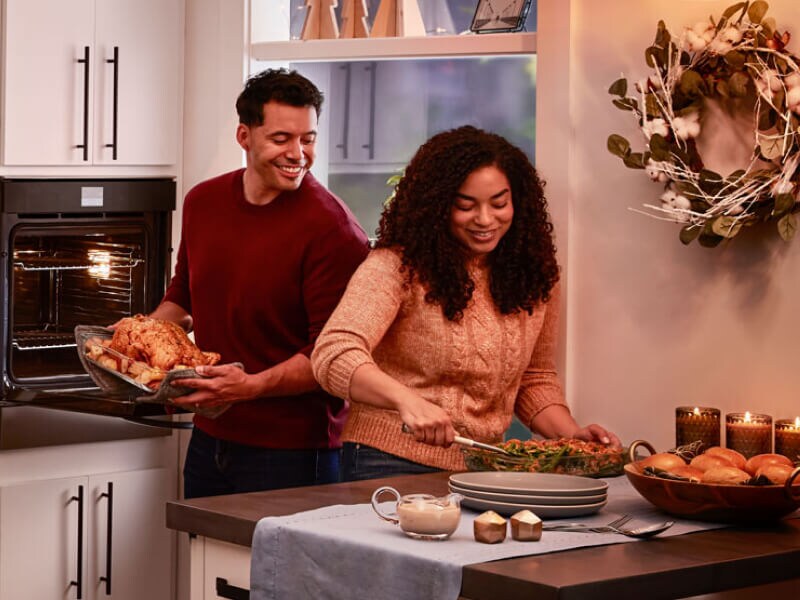
What is the difference between frying and searing?
Similar to browning, the difference between frying and searing has to do with the intensity of the heat as well as the amount of fat or oil used. While searing relies on high heat and enough oil to coat the entire pan, frying involves less oil and lower heat.
Shop Whirlpool® ranges & cooktops
With a Whirlpool® range or cooktop, you can create healthy and delicious meals for your family without slowing down mealtimes. With the powerful features like SpeedHeat™ burners and full-width grates on select models, you can explore different cooking techniques backed by the versatility and convenience of ranges and cooktops by Whirlpool brand. Explore the full collection to discover the appliance that's right for your family's kitchen.
Learn more cooking techniques & tips with Whirlpool brand


home heartbeat
Ready for more tips, home hacks and appliance guides?

